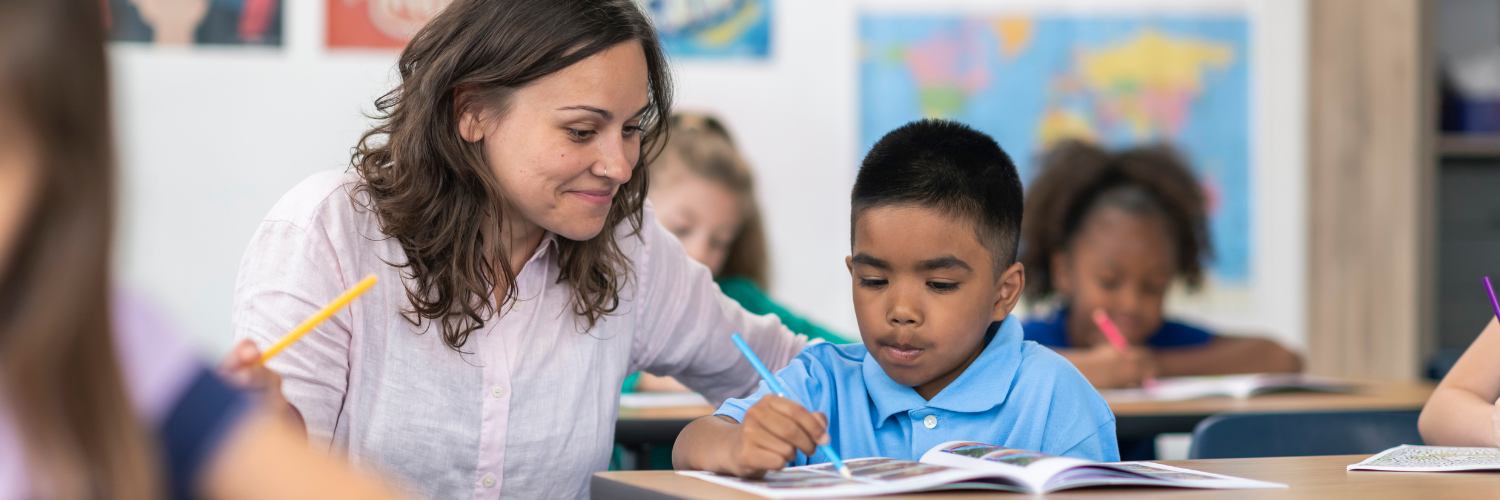Engaging schools in your offer brings obvious benefits – a captive audience of children and young people, income and access to specialist knowledge. However, investing in longer-term relationships, and collaborating with teachers as partners, can bring about greater change for creative arts in schools and more in-depth engagement for your organisation.
We spoke to Liz Philips, a former Head of Creative and Performing Arts from Kingsway Park High School in Rochdale to explore some of the benefits of partnership work from a teacher’s perspective. Read on to find out how you can begin and develop your relationships with educational partners.
What does a good partnership relationship with a school look like?
Liz: It’s got to be a two-way thing … creating that long-term relationship means that you get to understand everyone’s needs. It’s that relationship building too, everyone gets to know each other on a personal level.
We worked for many years in partnership with Oldham Coliseum and the practitioner there, Ben, understood the needs of the students. I think having that personal contact that you know who to talk to, and if you want something specific, then you can develop it together.
What are the key things that help you to decide who to work with?
Liz: If I was looking for something specific, I would always research what they had to offer and what they have delivered in other schools, what sort of workshops and performances. You have to be really careful and do your research…I've taken students to performances in the past but they just haven't been suitable. And if you're not careful that could put students off for life. I took a class to see a performance once and it just wasn’t right and one student said to me, ‘I'm not going to the theatre again’. So it's really important that the workshops and the performances really match the students’ needs. Sadly, there is always a cost factor because it’s not just about theatre tickets or seeing an exhibition, it's things like the travel cost of coaches.
There was a network of creative arts teachers in Rochdale and we’d often share information and recommendations. I’ve phoned schools in the past to get their feedback. So making that really clear is important – who have you worked with, what have other schools said etc.
What are some of the mechanisms cultural organisations could use to better communicate their offer?
Liz: I went to a meeting at the Lowry and that was really useful. They gave details about their upcoming programme – we need plenty of warning to find out what’s going on, whether it’s an exhibition, piece of music etc so having meetings to inform planning is useful and a good opportunity for face-to-face contact.
Can you describe a particularly positive experience of collaborating with a cultural organisation?
Liz: We worked with the National on two occasions and that was extremely positive. They wanted to work with Northern schools so we applied to host a performance and were successful…the impact that had on the kids was amazing. It was fantastic. But I think what was really good was, before the event, there were lots of meetings and workshops. There was one with Frantic Assembly where teachers could really get into the depths of the performance. This meant we could pass knowledge onto the students…we could teach with and alongside the play about themes and techniques.
What for you as a teacher made those opportunities more fulfilling?
Liz: Getting ideas actually…I've been teaching for years and engaging in a workshop or performance, it just gets the adrenaline going and it motivates you. I went to the National Theatre Drama Teachers Conference and it just fired us all up. As teachers, we want to teach what's out there in the real world. We want to engage in workshops and with practitioners.
What training and networking opportunities did you find useful?
Liz: The teachers’ meeting at the Lowry was useful and then there were things that happened locally like the Drama and Arts network to share resources and links.
What resources did you find most useful?
Liz: How a piece links to exam criteria is useful. So for example in Drama, specific performances and workshops where technical elements are relevant - the design and staging. Teacher packs that include those elements in a downloadable format so that students can access them too.
What’s missing? What could cultural organisations offer that’s not currently out there?
Liz: More showcasing opportunities, more opportunities for students to perform or share their work. There's also a real lack of knowledge about technical aspects, such as lighting, costume makeup, and stage management. I think a lot of that is neglected. It's all to do with what's upfront. Getting into spaces to see rehearsals unfold or watching an artwork unfold in progress, seeing the process as well as the end product I think is really missing. Collaborative partnerships with other schools are always a good idea.
If you have an idea for a project or event you’d like to collaborate on or want to have a chat with our team to understand more about how The Audience Agency can work with you, contact us at: workwithus@theaudienceagency.org



